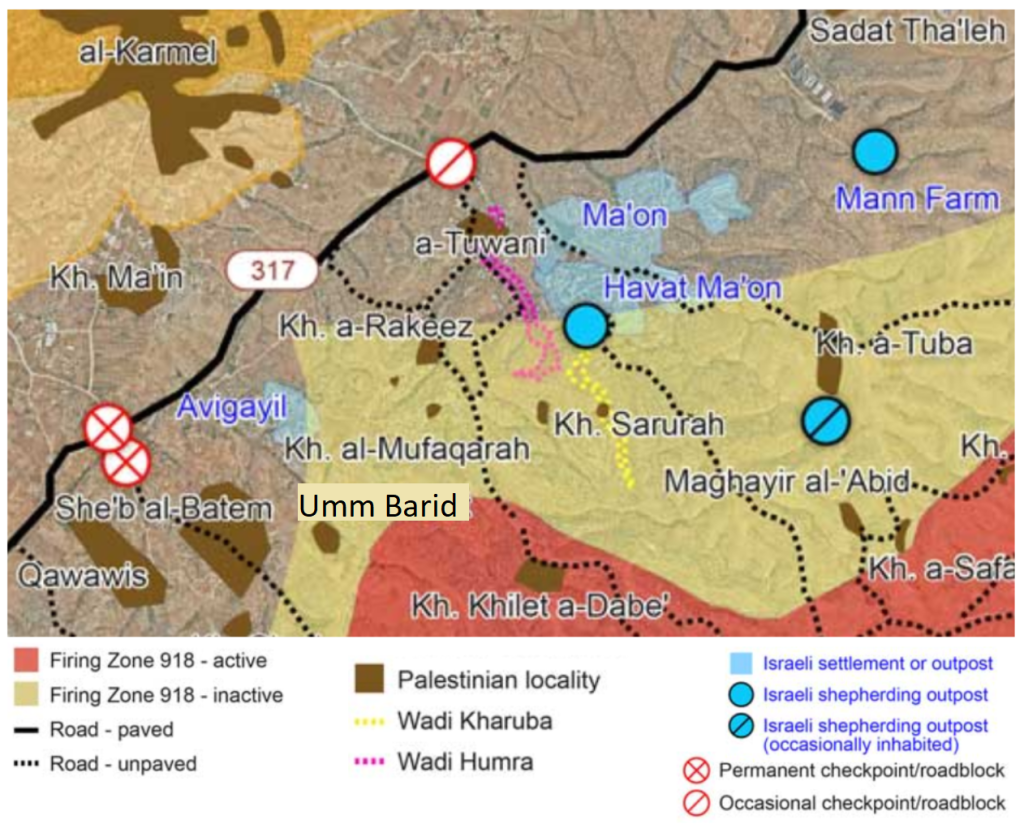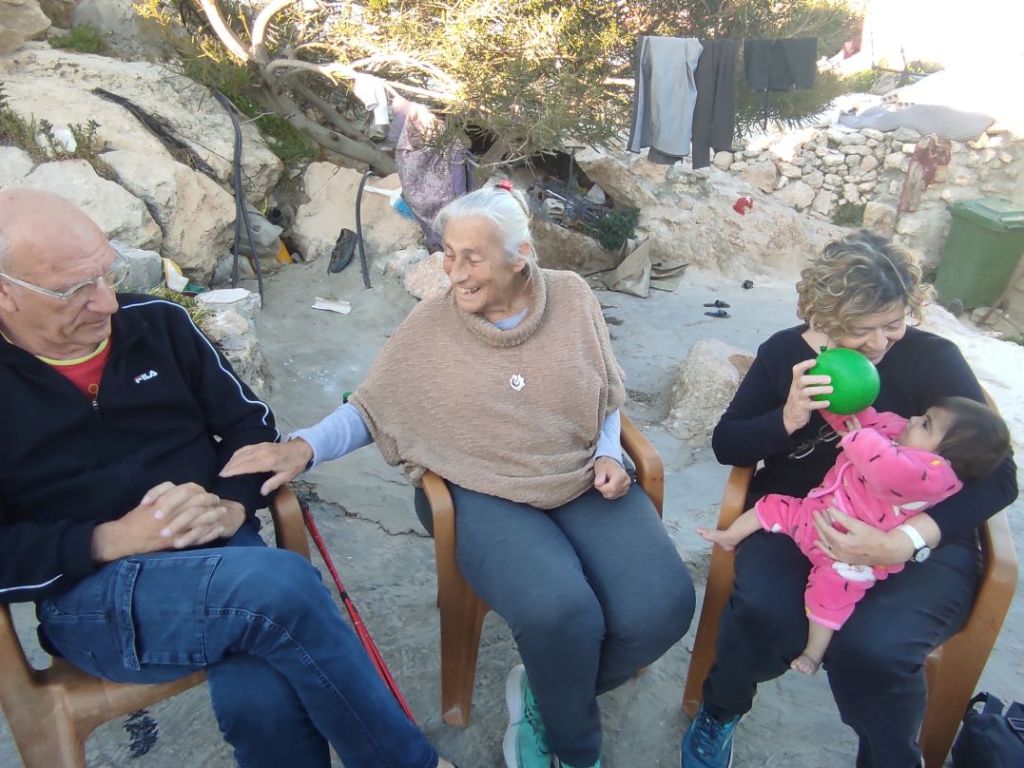Most of the friends visited during early Ramadan live north-central Massafer Yatta. A larger map of Massafer Yatta can be found here. To see the broader surroundings, go to B’Tselem’s interactive map and zoom towards the very south of the West Bank.

To our friends all,
On the usual days of occupation, one could make plans. For example – whom do we visit tomorrow, with whom do we share the end-of-fast dinner etc. etc. But these are not usual days. The present days are occupation-on-steroids. This is occupation in wartime, whose soldiers are settlers sent by the nation. The situation has worsened to such a degree that one may hear our friends in Massafer Yatta actually missed the “relaxed and stable” past of normal occupation, which was the norm until October 7th.
The Ramadan month of fasting began on Monday. On Tuesday we planned visits in several villages including the place we intended to dine with a Palestinian family as they break their fast.

We got into the car at noon. With one hand I closed the door, with the other I answered my phone. L. of Umm Darit (aka Umm Barid) was on the line. We had dined there just last night. The wonderful taste had not yet disappeared, my heart was still enjoying our wonderful time with this family. However, in fast trembling words she reported that just this very minute settlers and soldiers had taken the IDs of her husband M. and her son F., and that M. must sit beside them without moving. That the volunteer activists are talking with the soldiers, that the family has called the army, and that all is happening in real time, but she stopped detailing for she had to hang up…
At once we changed our plans and drove to them. When we got there, Israeli volunteers had already arrived in addition to the internationals. We saw the military vehicles leaving. The police instructed them to leave. The internationals had to show their passports and this event ended without injuries.
The settlers have a method: they come on their ATV – two or three of them – and threaten the Palestinians, and immediately alert the army that quickly complies. The police, on the other hand, nearly always arrive at the end. [Even though both the military and the police had solemnly promised M. that they will rush to protect his family when he calls to report a settler aggression]. Our friends of Umm Darit have known harsh treatment by their thieving neighbors, and in fact threatening settler presence is there all the time. And still M. and his family manage to run their lives there.

I stand in the arid field above their home, next to the water hole, opposite M. who has just now shaken off the toxic grab of his haters, and say to him: “Inside of you there is something so stable, unbreakable. You have these inner confidence, wisdom and humility that keep you safe. You are noble.” This is exactly what I told him in the midst of a fasting day as the soldiers and settlers left and the family, including everyone who came to support them, were bustling around us. M. listened to my words, smiling his child’s smile, and answered: “It’s true what you say.”
A tear dropped on my cheek as I listened. A love tear. Love in times of injustice and evil.

We then continued to Tha’ala. We came to Umm Darit at the closing notes of an aggression event. To Tha’ala we arrived before one. We heard about these events as we continued and visited Zakariya, who nearly lost his life in an incident at the outbreak of the war.

We then dined at Rakeez with our friends from the family of Abu ‘Aram, who had paid for these ‘incidents’ with the life of their son – incidents taking place even before this forced war of blindness and hatred, and doubly blind and hateful since October 8th.
How much power does one need in order not to hate the haters.

Erella, on behalf of the Villages Group

Trackbacks
[…] March 12 ’24: Ramadan Starts, Harassment by Settler+Military Continues […]
[…] March 12 ’24: Ramadan Starts, Harassment by Settler+Military Continues […]